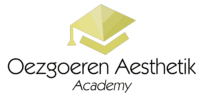How are alternative practitioners and doctors allowed to advertise aesthetics?
Legal limits and possibilities of advertising aesthetic services for doctors or alternative practitioners in Germany
In recent years, aesthetic medicine has developed into a booming market. More and more people are looking for ways to improve their appearance and boost their self-confidence.
For doctors and alternative practitioners, this offers a lucrative opportunity to offer aesthetic services. However, the advertising of such services is subject to certain legal limits and requirements that must be strictly adhered to in Germany. In this article, we will provide an overview of the legal requirements and opportunities for doctors and alternative practitioners to advertise aesthetic services, including competitions, discount promotions and vouchers.
Therapeutic Products Advertising Act (HWG):
The Therapeutic Products Advertising Act regulates the advertising of medical services, including aesthetic treatments. It stipulates that advertising for prescription drugs or medical procedures must not be misleading, exaggerated or inadmissible. Doctors and alternative practitioners must ensure that their advertising is truthful, factual and comprehensible.
Competitions:
Pursuant to Section 11 para. 1 sentence 1 no. 13 HWG, advertising may not be carried out by means of competitions, prize draws or other procedures whose outcome depends on chance, if these measures or procedures encourage the inappropriate or excessive use of medicinal products.
We therefore generally advise against the use of competitions for advertising purposes. Especially if they are directly linked to aesthetic medicines.
Discount campaigns:
Discount campaigns can help to attract new customers and strengthen loyalty with existing customers. Discounts should be communicated transparently and without misleading advertising that promises excessive or unrealistic savings.
However, doctors generally bill according to the GOÄ (see our blog post on billing). Price promotions are not provided for here and are therefore prohibited.
Vouchers:
Vouchers can be an attractive way of attracting new customers and rewarding existing customers. However, according to the Therapeutic Products Advertising Act (Section 11 (1) sentence 1 no. 14), the following applies “through the distribution of medicinal products, their samples or specimens or through vouchers” may not be advertised.
Children and young people:
Advertising measures aimed exclusively or predominantly at children and young people are prohibited.
Before and after pictures:
While the use of “the comparative representation of body condition or appearance before and after a plastic surgery procedure” is clearly prohibited, we believe that its use in non-surgical injections has not yet been clearly clarified. We have written a separate blog article on this topic.
Advertisements, flyers, posters, social media:
However, other forms of advertising are generally open to aesthetic doctors and alternative practitioners. For example, Google or meta ads may be placed, as may traditional print media.
However, the requirement is always that the advertising must not be misleading, exaggerated or inadmissible.
Conclusion:
Advertising for aesthetic services as a doctor or alternative practitioner in Germany offers various possibilities and limitations. It is important that these marketing tools are used in accordance with legal requirements. Doctors and alternative practitioners should ensure that their advertising is truthful, factual, transparent and not misleading.
By adhering to these legal requirements, doctors and alternative practitioners can effectively promote their aesthetic services and attract clients while maintaining the integrity and reputation of their practice.
You can also find more detailed information on aesthetically acceptable advertising and further legal background in our courses.
This article does not constitute legal advice and is not a substitute for such advice. The article does not claim to be up-to-date, complete or correct. We accept no liability for damage caused by incorrect information. If in doubt, seek legal advice.

